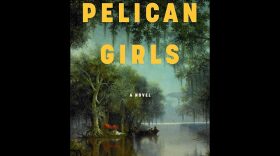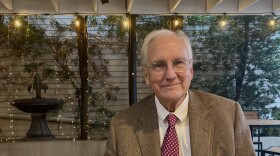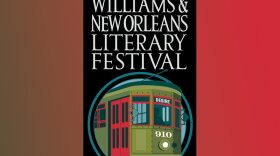-
-
This is American Routes, I’m Nick Spitzer. We’ll be traveling to southern France to meet that most American of cartoonists: the often beloved and sometimes reviled Robert Crumb, with his social criticism, politically incorrect and sexually explicit characters: Fritz the Cat and Mr. Natural, Flakey Foont and Angelfood McSpade–drawings and earthy dramas that made him the comic book king of the high hippie era. But R. Crumb is also deeply drawn to the nostalgia of old America heard on 78 RPM records. He’s collected over seven thousand of the platters.
-
Evan Christopher began playing clarinet in junior high school in Long Beach, CA. His first introduction to New Orleans music was hearing Louis Armstrong's Hot Fives and Sevens with Johnny Dodds and Artie Shaw on his dad’s records. Evan moved to New Orleans in his early 20s. Here he worked as a steamboat clarinetist by day and explored the music scene on Frenchmen Street by night. He went on to collaborate with Tom McDermott, Al Hirt, the New Orleans Nightcrawlers, Galactic, and others. His “Clarinet Road” led him from Socal to New Orleans, San Antonio, Paris, and he now resides in New York City. Evan told us how he came to understand the music of New Orleans.
-
-
Donald Harrison is known as a modern jazz saxophonist here in New Orleans, and although he grew up hearing parades and funerals in his youth, his major influence was at the New Orleans Center for the Creative Arts, under his teachers like Kidd Jordan and Alvin Batiste. Harrison spent years in New York City as one of Art Blakey’s Jazz Messengers and later co-lead a modern jazz band in New York with New Orleans trumpet player Terence Blanchard. But Harrison never forgot his New Orleans roots…a place where jazz is still dance music. He also came home to his father Donald Harrison, Sr.’s traditions of song and street performance, suited up in sequins and feathers as a Mardi Gras Indian chief leading the Guardians of the Flame. Donald Harrison told me that his rooted, but worldly musical eclecticism began at home.
-
-
The late Dr. Lonnie Smith of B-3 organ fame was a native of Buffalo, NY, where he got noticed sitting in with Jack McDuff. Lonnie Smith moved to New York City to join George Benson’s quartet and scored a solo record deal with Columbia. “Doc” Smith mixed jazz, soul, blues and pop in his own compositions, as well as covers of Coltrane, Hendrix and Beck. Growing up, Lonnie Smith sang gospel songs in church and at home. His brothers played guitar and drums. Lonnie’s first instrument came to him magically, he says, “almost like in a movie.”
-
The Historic New Orleans Collection spotlights former Congressman Bob Livingston.
-
-
This is American Routes for St. Patrick's, with singers, fiddlers and pickers from Ireland to Appalachia live in this hour. Sharing Irish, bluegrass and country tunes with one another at the 80th National Folk Festival. Beginning with brothers Rob and Ronnie McCoury playing banjo and mandolin on stage in Salisbury, Maryland, 2021 with Ronnie's tune, " Quicksburg Rondevouz."
-
We hear New York Times investigative journalist Nikole Hannah-Jones, in conversation with former New Orleans Mayor, Mitch Landrieu. Nikole Hannah-Jones is most recognized for her work on the 1619 Project, which has won numerous awards, including a Pulitzer Prize for Commentary in 2020. The 1619 Project became the target of public critique from Republican governor, Ron Santis, in his crusade against "CRT" and "wokeness" in academia. Nikole Hannah-Jones recounts how she became involved in journalism, talks about the origins of the1619 Project and the importance of national "creation myths," and responds to her most vocal critics.
-















